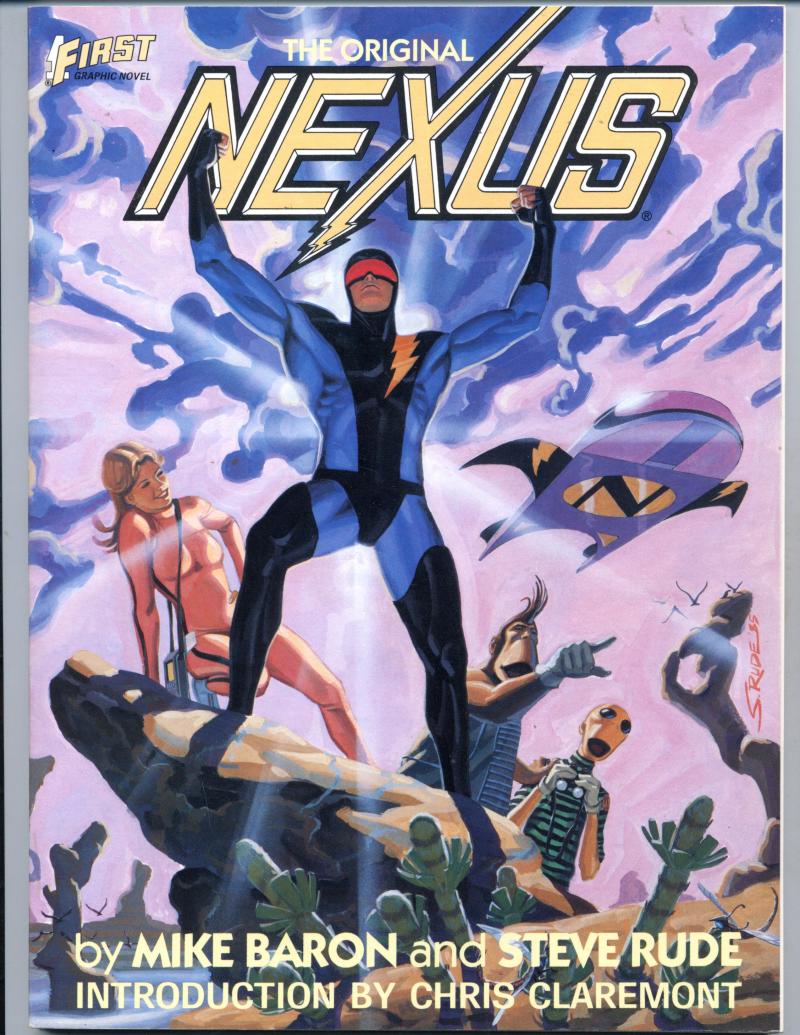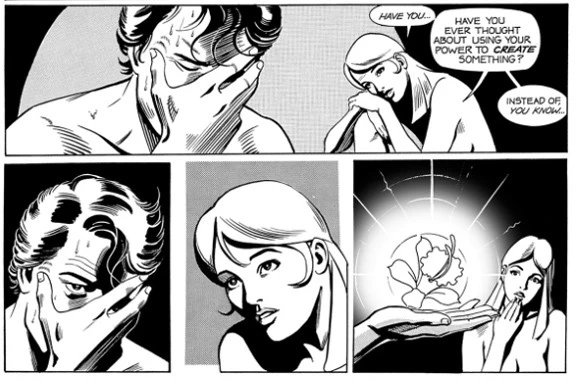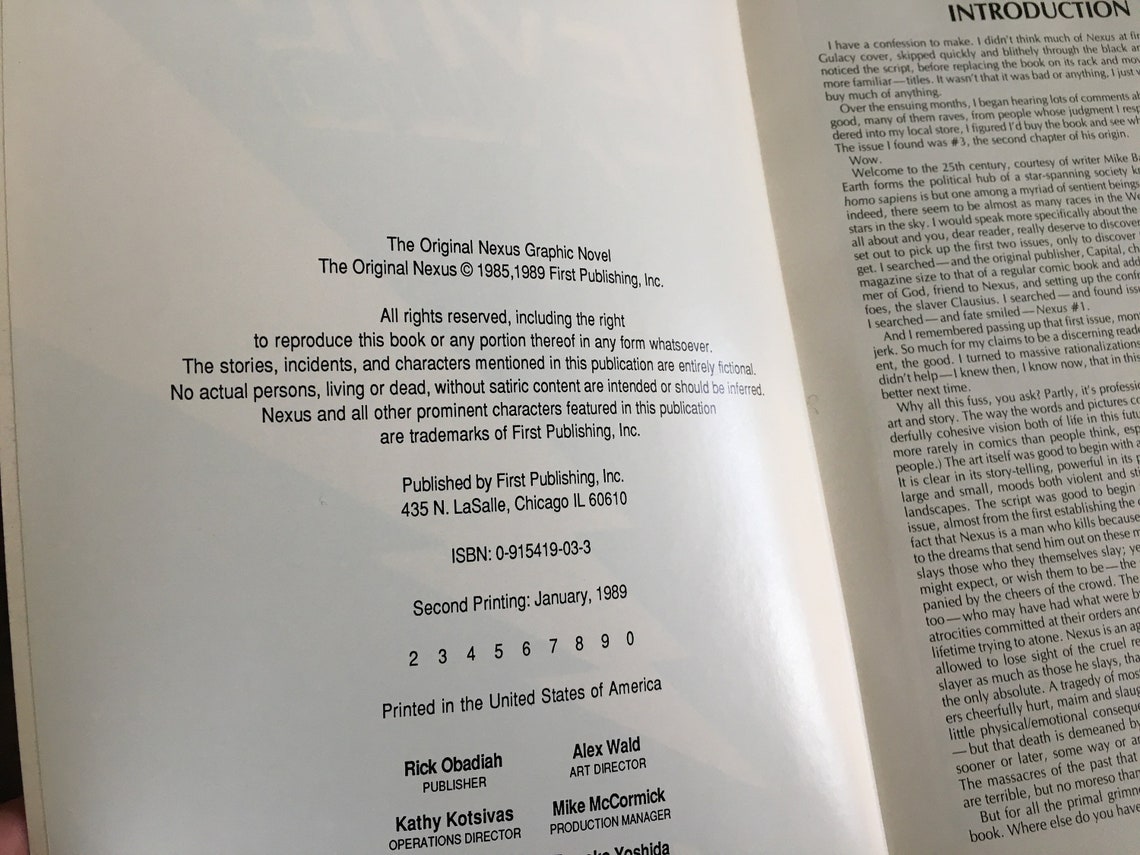

His main character is much like the Spectre, who is compelled to exact justice on those who have previously eluded it. In its way, Nexus is exactly like the superhero comics Baron is trying to reject. And why? Well, because of better publicity, mostly.

But Nexus today means little while Watchmen remains just as legendary as ever. There's a real case to be made that this material directly inspired Alan Moore's Watchmen, which is similarly exaggerated in quality by fans eager to justify its continued popularity Baron handles the same basic beats better, actually, although neither knows what to do with them except play the same superhero material they claim to abhor. The storytelling is of the kind that's convinced it's better than it is, the way these comics tend to be, finding success and then justifying it by claiming they're better than the competition (i.e. The whole thing explains how Horatio becomes Nexus quite handily, although I'm not entirely convinced that Baron himself understood just how well. Nexus begins life as Horatio Hellpop, who learns one day about his dad's prior life as a brutal despot.

Mike Baron seems to have been inspired, whether consciously or otherwise (included is an essay where he explains how it all began, and no such revelation is coming), by classic Greek tragedy (the Oedipus cycle). This collection features the character's origins in more ways than one: not only his first appearances but, well, his origin as well. The concept itself is more science fiction than anything. And yes, technically Nexus looks like a superhero, but he's really not.

Nexus is one of those comic book properties that's impossible not to at least have heard of, a legend of the '80s that helped define the medium outside of Marvel and DC.


 0 kommentar(er)
0 kommentar(er)
